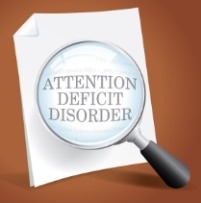Posts Tagged ‘psychiatric’
Sensible and perplexing changes in ADHD diagnostic criteria (DSM‑V)
The American Psychiatric Association recently published DSM‑V, the first major revision to the diagnostic manual for psychiatric disorders since 1994. In DSM‑V, ADHD is included in the section on Neurodevelopmental Disorders, rather than being grouped with the disruptive behavior disorders, i.e., Oppositional Defiant Disorder and Conduct Disorder. This change better reflects the way ADHD is…
Read MoreDoes ADHD medication treatment in childhood increase adult employment?
Although ADHD used to be considered a disorder of childhood, follow-up studies indicate that between 30% and 60% of children with ADHD continue to experience symptoms and impairment in adulthood. And, even when ADHD symptoms decline over time, many individuals continue to experience significant impairment in important areas of functioning. For example, children with ADHD have
Read MoreBrain Training to Enhance Performance, both post-Traumatic Brain Injury and for the workplace
A couple of very interesting recent announcements show (in a military context) how well-targeted brain training can complement and augment existing approaches, both to help “normal” and “clinical” populations, in ways that silo-based, rear-mirror thinking often misses:
Read MoreMichael Merzenich on Brain Training, Assessments, and Personal Brain Trainers
Interview with Dr. Michael Merzenich, Emeritus Professor at UCSF, a leading pioneer in brain plasticity research. In the late 1980s, Dr. Merzenich was on the team that invented the cochlear implant. In 1996, he was the founding CEO of Scientific Learning Corporation (Nasdaq: SCIL), and in 2004 became co-founder and Chief Scientific Officer of Posit Science. He was elected to the National Academy of Sciences in 1999 and to the Institute of Medicine this year. He retired as Francis A. Sooy Professor and Co-Director of the Keck Center for Integrative Neuroscience at the University of California at San Francisco in 2007. You may have learned about his work in one of PBS TV specials, multiple media appearances, or neuroplasticity-related books.
Read MoreShall we question the brand new book of human troubles
With three years still left until publication, the fights over the new version of the psychiatric diagnostic manual, the DSM‑V, are hotting up and The New York Times has a concise article that covers most of the main point of contention. — “What you have in the end, Mr. Shorter said, “is this process of…
Read More


